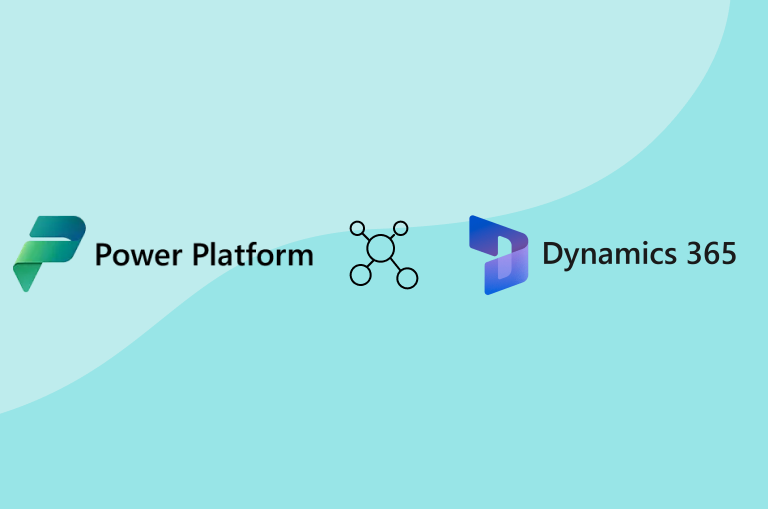Can power platform apps be integrated with Dynamics 365?

Integrating Power Platform Apps with Dynamics 365: Enhancing Sales and Operational Efficiency
Many organisations seek agile solutions to streamline operations, enhance customer engagement, and drive sales. Microsoft's Power Platform, comprising Power Apps, Power Automate, Power BI, and Power Virtual Agents, offers a suite of tools designed to empower businesses to build custom applications, automate workflows, and gain insights from data. When integrated with Dynamics 365, particularly Dynamics 365 Sales, these tools can significantly enhance business processes and sales performance.
Seamless Integration: Power Platform and Dynamics 365
The integration between Power Platform and Dynamics 365 is facilitated through Microsoft Dataverse, a unified data platform that allows data to be shared across applications. This integration enables organisations to:
- Build Custom Applications: Power Apps allows users to create tailored applications that can interact with Dynamics 365 data, enabling specific business scenarios without extensive coding.
- Automate Workflows: Power Automate enables the automation of repetitive tasks and processes, such as lead nurturing and approval workflows, enhancing efficiency.
- Gain Insights: Power BI provides advanced analytics and visualisations, allowing businesses to derive actionable insights from their Dynamics 365 data.
- Enhance Customer Engagement: Power Virtual Agents facilitates the creation of intelligent chatbots that can interact with customers, providing immediate responses and support.
This integration ensures that data flows seamlessly between systems, reducing silos and improving decision-making.

Enhancing Dynamics 365 Sales with Power Platform
Dynamics 365 Sales is a robust CRM solution that benefits significantly from Power Platform integration:
- Custom Sales Dashboards: Utilising Power BI, sales teams can create interactive dashboards that provide real-time insights into sales performance, pipeline status, and customer interactions.
- Automated Lead Management: Power Automate can streamline lead qualification and assignment processes, ensuring timely follow-ups and reducing manual effort.
- Mobile Sales Applications: Power Apps enables the development of mobile applications tailored for sales representatives, providing access to customer data and sales tools on the go.
- Intelligent Chatbots: Power Virtual Agents can be deployed to handle routine customer inquiries, freeing up sales teams to focus on high-value activities.
These enhancements lead to improved sales productivity, better customer experiences, and increased revenue.
Real-World Applications
Organisations across various industries have leveraged the integration of Power Platform and Dynamics 365 to address specific business challenges:
- Manufacturing: Companies have developed custom applications using Power Apps to manage inventory and production schedules, integrating seamlessly with Dynamics 365 Supply Chain Management.
- Healthcare: Healthcare providers have utilised Power Automate to streamline patient intake processes, connecting data with Dynamics 365 Customer Service for improved patient experiences.
- Retail: Retailers have implemented Power BI dashboards to analyse sales trends and customer behaviour, informing strategies within Dynamics 365 Sales.
These examples demonstrate the versatility and impact of integrating Power Platform with Dynamics 365.
Getting Started with Integration
To begin integrating Power Platform with Dynamics 365:
- Assess Business Needs: Identify processes that can benefit from automation, custom applications, or enhanced analytics.
- Leverage Microsoft Dataverse: Utilise Dataverse to ensure seamless data integration between Power Platform applications and Dynamics 365.
- Develop and Deploy Solutions: Use Power Apps to build custom applications, Power Automate for workflow automation, and Power BI for analytics.
- Train Teams: Ensure that staff are trained to use the new tools effectively, maximising the benefits of the integration.
Microsoft provides extensive documentation and support to assist organisations in this integration journey.
Conclusion
Integrating Power Platform applications with Dynamics 365, especially Dynamics 365 Sales, offers organisations the flexibility to tailor solutions to their unique needs, automate processes, and gain valuable insights. This synergy enhances operational efficiency, improves customer engagement, and drives sales performance. By embracing this integration, businesses position themselves to adapt swiftly to market changes and achieve sustained growth.

